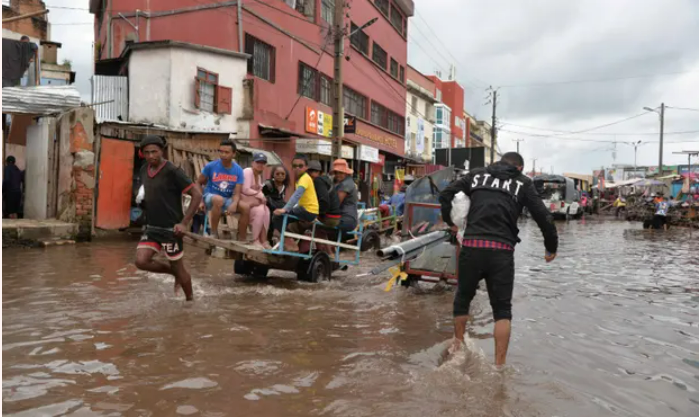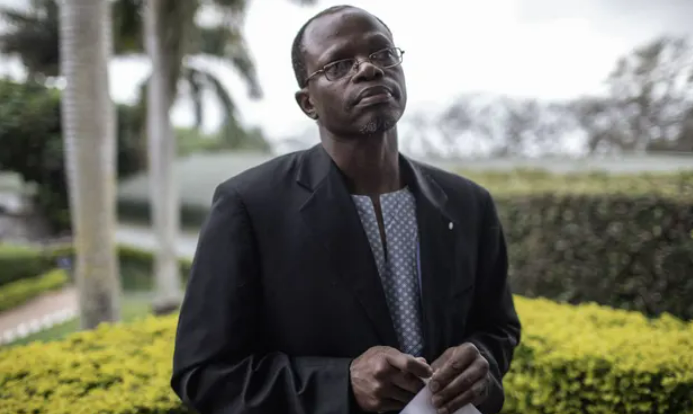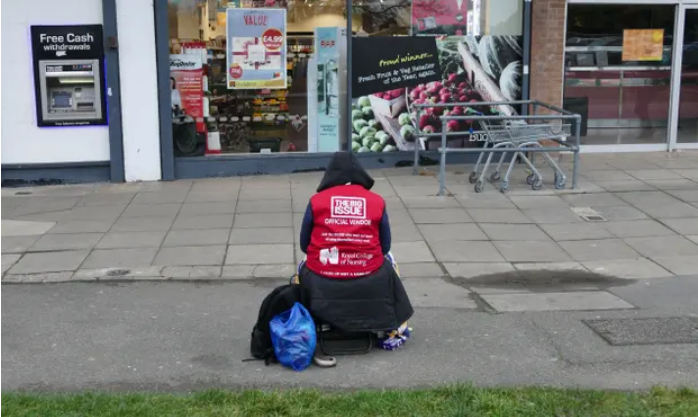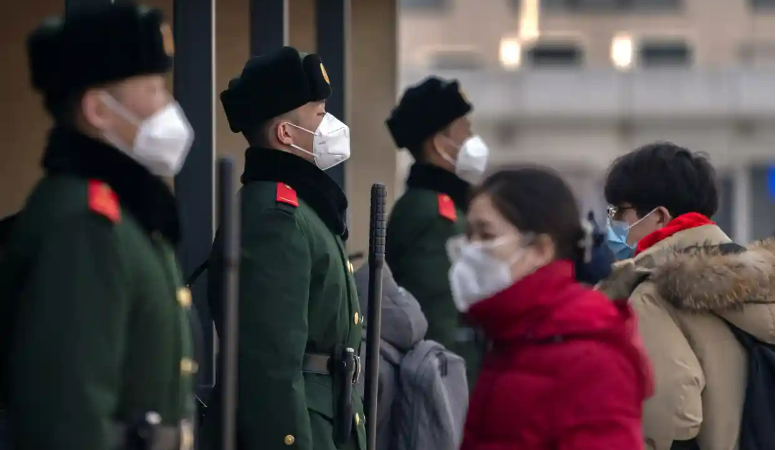Zimbabwe opposition warns of election violence: “The Crocodile has not changed”
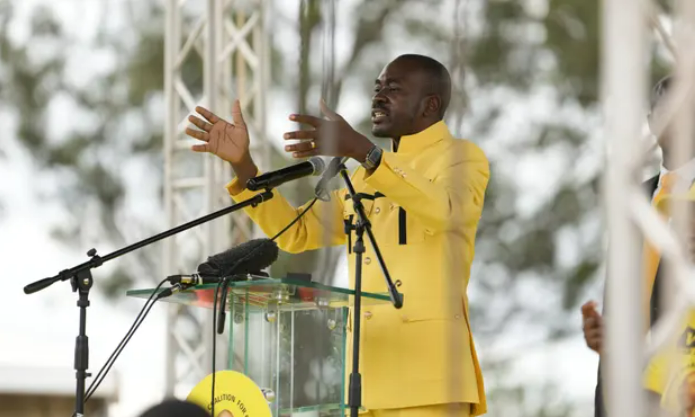
In order to assure its triumph in the elections later this year, the ruling Zanu-PF party has threatened violence and repression, according to the leader of Zimbabwe’s biggest opposition party.
Nelson Chamisa, president of the Citizens Coalition for Change (CCC), urged the international community to “give solidarity” to those working for change in the troubled southern African nation despite other problems occurring elsewhere in the world in an interview with the Observer.
“People are killed here too for having different ideas. Zimbabweans desire to reform and transformation, according to Chamisa.
The upcoming elections, scheduled for July or August, will be the second to take place since the military coup that toppled longtime leader Robert Mugabe in 2017 and installed Emmerson Mnangagwa, one of the former dictator’s top lieutenants, in office.
After 37 years of Mugabe’s increasingly autocratic rule, expectations of a new age of change, democracy, and accountability were unfounded. While the majority of the people are experiencing poor economic conditions, critics of the new government have experienced a series of crackdowns.
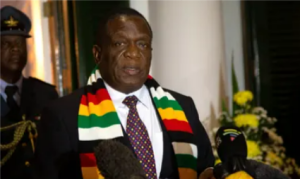
Mnangagwa, known as “the Crocodile” for his cunning and alleged cruelty, is anticipated to run for re-election in this year’s elections.
The leopard’s spots haven’t changed. Violence is a major concern because the crocodile’s antics and methods have not altered. The Zanu-default PF’s position is one of violence. We can see ominous clouds forming, Chamisa added.
Last Saturday, when they raided a gathering of CCC activists in a private home in the Budiriro district, approximately 10 miles (16 km) from the center of the capital, Harare, the authorities provided a striking example of what opposition activists may expect in the months to come. Twenty-five people who had been detained last week appeared in court.
Lawyers are also appealing for the release of Job Sikhala, a CCC leader who is thought to have been crucial in gaining the party’s support in urban areas. Sikhala has already spent more than seven months in the Chikurubi high-security jail outside of Harare. After reportedly vowing to avenge the murder of an opposition activist, whose body was dismembered before being placed in a shallow well last June, the outspoken lawmaker was charged with inciting violence.
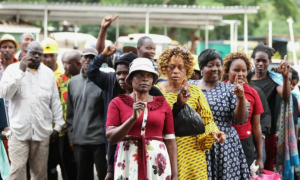
The Zimbabwean author Tsitsi Dangarembga was convicted of inciting violence last year after holding up a sign that read, “We want better,” in public. She was sentenced to six months in prison. Restructuring our institutions On the condition that she does not commit the offense again, the sentence was suspended for five years.
Mnangagwa narrowly escaped a run-off in the 2018 presidential election, which was marred by claims of vote manipulation, by garnering 50.8% of the vote. When standing at the time for the Movement for Democratic Change alliance, 44-year-old Chamisa, a former pastor, received 44.3% of the vote. Six people lost their lives when soldiers opened fire on commuters and demonstrators in central Harare shortly after the election.
Zimbabwe’s countryside has traditionally been ruled by the ruling party, which can use strong networks of patronage and coercion to win support even while many towns and cities are strongholds for the opposition.
The CCC, which was established a year ago, claims to be conducting a low-key, “village by village” campaign to win over voters. Although entirely legal, it has been very quiet. The spokeswoman for the CCC, Fadzayi Mahere, claimed that the CCC is now present in every village.
The CCC, however, lacks the infrastructure to successfully mobilize potential support in rural regions, where 65% of voters reside, and to shield supporters from retaliation, according to Piers Pigou of the International Crisis Group, a conflict-prevention organization. They might not be able to support their one vote. They will have difficulty obtaining the 40,000 poll workers they need, according to Pigou.
Hundreds of instances of attack, threats, or intimidation have been documented throughout Zimbabwe by the Zimbabwe Peace Project (ZPP), a non-governmental organization: 263 in November and 209 last month. About 45% of them were the fault of the Zanu-PF, while 28% were the police’s fault. Nearly nine out of ten victims had no political affiliation, with the remaining fatalities being CCC supporters.
Director of the ZPP Jestina Mukoko claimed that the ruling party guarded its influence in rural areas “jealously,” adding that they had a structure in place just for occasions like elections. They send out gatekeepers to monitor specific communities. People are told that they would be able to track their voting results, which causes a lot of dread.
Another issue is that the election commission of Zimbabwe altered constituency lines to benefit the ruling party. It was “an obvious case of gerrymandering,” according to Obert Masaraure, a political activist and the president of the Amalgamated Rural Teachers Union of Zimbabwe.
Dominating the SERPs and the map pack: 12 Reliable Local SEO Tips
Access to public resources like the comparatively well-funded media will be advantageous to Mnangagwa and the ruling party. Despite the appeal of a charismatic leader and widespread discontent, analysts say this makes them strong opponents to a still fragmented opposition. Without a doubt, Pigou predicted that Zanu-PF would triumph.
The government of Zimbabwe, according to Monica Mutsvangwa, minister of information, is committed to pressing freedom, pluralism, and “feeding the nation the proper information through the necessary and suitable channels.” However, she did not respond to messages from the Observer.
Last week, Mutsvangwa accused the “military-industrial complex of the west” of attempting to take control of Zimbabwe’s natural resources in a speech at the National Defence University in Harare. She informed the students, “The onslaught against Zimbabwe by the west and its media is a result of the tremendous riches endowments the country has, which they wish to use to restart their old thieving ways.
A severe economic downturn is a backdrop for the elections. The World Bank projects yearly inflation to range between 250% and 400%, and it predicts additional economic contraction in 2023. Some places only have access to electricity for three to four hours a day.
Mavis Mapako, 33, cannot afford to send her son, 6, to school because she makes insufficient money from her modest stall in Kuwadzana, a slum west of the capital Harare. “Life has been harder; it appears that things will get worse this year. My son might not be able to enroll this term due to increased fees. Not just his tuition, though; I also need uniforms, books, and other things that I simply cannot afford, added Masako.
By selling scrap metal that he discovers in containers or laying abandoned, Alberta Mafusire barely manages to feed his five children: “I wake up at 5 am before other pickers start collecting. I can load my cart in this manner. I will receive $10 for all of my efforts; that’s plenty, he claimed, to buy a sack of cornmeal.
After losing to Everton and clinging to his job, Frank Lampard promises to “dig in.”
2023, according to Chamisa, will be a year of transformation, success, and breakthrough. “As a people and as citizens, we are incredibly bonded. Africa is undergoing change. We need to create an anthem for freedom, democracy, change, and all African voices to sing it.

